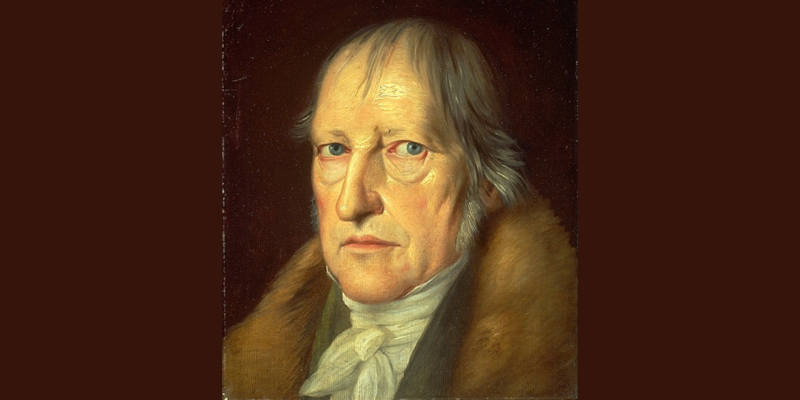We explain what dialectics is in philosophy and how this concept changed from Antiquity to the 20th century.

What is dialectic?
Dialectic is a methodological practice of philosophical debates and controversies whose central characteristic is the confrontation of two ideas to find a third. Ancient thinkers defined it as the art of discussion, a thought activity that consisted of comparing contradictory theses.
In general terms, dialectics is a method of philosophical argument developed in ancient times to draw consequences from hypotheses that are contrary to each other. These consequences were what allowed the competing hypotheses to be organized and interpreted.
Many thinkers used dialectics to create philosophy. From Heraclitus and Plato to Kant and Hegel, dialectics underwent different transformations of use, form and definition. It is not the same to talk about Platonic dialectics as Hegelian ones.
However, all forms of dialectics have in common the fact that they are a discursive operation between contrary arguments to find a third element which is nothing other than the consequence of that confrontation.
The word “dialectic” comes from classical Greek. dialektike (διαλεκτική) and is usually translated as “conversation technique”. It is assumed that in dialektike there is influence of the word tecknewhich means technique, and that is why we speak of the “art of conversation.”
See also: Philosophical knowledge
History of dialectics
In ancient times, dialectics It was a way of reasoning based on dialogue: exchanging arguments and counterarguments was the best way to obtain a synthesis of opposing ideas.
Some historians consider that the father of dialectics was Heraclitus (540-480 BC). Others suppose that the term was first coined by Zeno of Elea (495-430 BC). The truth is that the popularity of its practice came thanks to the works of Socrates and Plato.
Dialectic according to Plato
In the Platonic dialogues we find two forms of dialectic.
- The first has to do with the Socratic method and is known as the Elenchos method (“rebuttal” or “scrutiny”). It consists of exploring a vague belief by exploiting its logical consequences and the contradictions discovered.
- The second form appears in Republic as a discursive and intuitive procedure at the same time. It is the process by which the philosopher ascends from Idea to Idea to the first principle, embracing the multiplicity of the One.
Dialectic according to Thomas Aquinas
After Plato, and after the assimilation, in Aristotle, of dialectic to rhetoric, The medieval world transformed dialectics into a scholastic method called A quaestio disputata (the question to be addressed). This method consisted of arguing a first answer to a question, followed by a second option to which different objections arising from the first were confronted. Thomas Aquinas was one of the philosophers who worked in this way.
Dialectics according to Hegel
Starting in the 18th century, the term dialectic acquired a new meaning thanks to Georg Wilhelm Friedrich Hegel (1770-1831). Hegel maintained that reality was made up of opposites whose conflict gave new concepts that, upon entering reality, came into conflict again with something that opposed them.
Formally, and thanks to Hegel, the term dialectic came to refer to those discourses in which it is opposed:
- Thesis. A traditional conception.
- Antithesis. A demonstration of its problems and contradictions.
- Synthesis. The new understanding of the problem, which is reached from the contrast of the first two.
This type of reasoning developed by Hegel, later was taken by Karl Marx (1818-1883) in his interpretations of history and society and later continued by Friedrich Engels (1820-1895). Also other Western thinkers, such as Theodor W. Adorno (1903-1969), took up the dialectical concept and method. In particular, Adorno transformed the positive moment of the dialectic into a “negative” dialectic, by leaving the argument unfinished.
Dialectic today
Many contemporary philosophers and scientists discuss the idea of dialectics as a method. Thinkers such as Lucien Seve or Jean-Paul Sartre maintain that it is not an adequate method to obtain knowledge of nature. In fact, Sartre has a book specifically dedicated to the subject, Critique of dialectical reason.
However, not everyone thinks the same. Some scientists maintain that it is a revealing tool to work on natural phenomena in its evolution. John Haldane, Richard Lewontin and Stephen Jay Gould are of this opinion.
From the contributions of dialectics to science we can find a lot of information. For example, in the work of Évariste Sanchez-Palencia, Dialectical walk through the sciences The author links the dialectical method with the mathematical theory of dynamic systems, supported by colleagues such as Paolo Quintilli, an Italian scientist, and many others.
Continue with: Reasoning
References
- Pons Dominguis, J. (2019). Platonic dialectics and methodology. Spanish magazine of comparative education.
- Wed, F. (2019). Dialectics, preaching and metaphysics in Plato. National University of the Coast.
- Horkheimer, M., Adorno, T.W., & Murena, H.A. (1971). Dialectic of Enlightenment. Buenos Aires: South.
- Gadamer, H.G. (2000). Hegel's dialectic. Chair Editions.
- Sánchez-Palencia, E. (2016). Dialectical walk through the sciences. University of Cantabria.
- “Dialectic” on Wikipedia.
- “The dialectic I” (video) in Educatina.
- “Dialectic” in Filosofía.org.
- “What is dialectic?” by Alexandre Kojève in the Social Sciences Magazine of the University of Costa Rica.
- “Dialectic (Logic)” in The Encyclopaedia Britannica.





